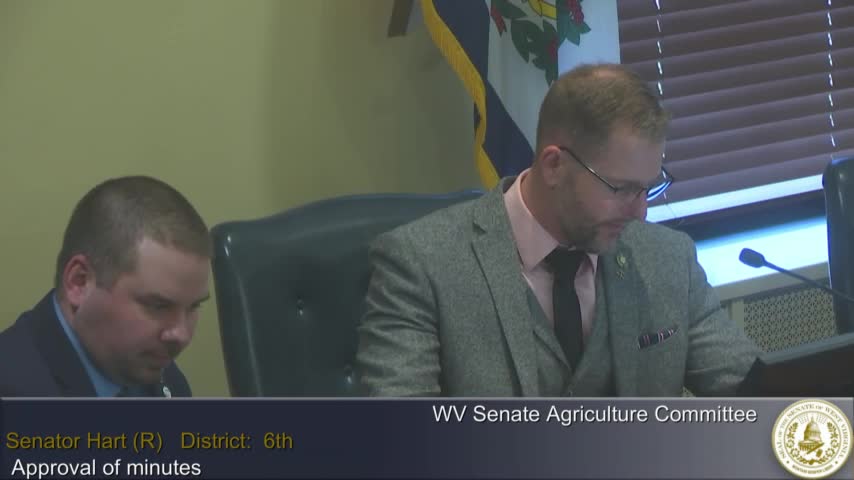Senate committee approves bill to classify commercial solar farms as nonagricultural for appraisal and liability rules
Get AI-powered insights, summaries, and transcripts
Subscribe
Summary
The West Virginia Senate Agriculture Committee approved a committee substitute for SB 295 to clarify that commercial solar generation facilities are not farm property under two chapters of state code, with limited exceptions for panels on residences or farm structures.
The West Virginia Senate Agriculture Committee approved a committee substitute for Senate Bill 295 at its meeting to clarify that certain solar electric generation facilities are not considered farming operations for purposes of property appraisal and selected civil-liability protections.
Committee counsel told members that “Senate bill 295 relates to clarifying the non agricultural status of solar farms and amends 2 sections of code.” The substitute would amend two code sections—one in Chapter 11 (appraisal of farm property) and one in Chapter 19 (preservation of agricultural production)—to specify that acreage hosting solar facilities that sell electricity commercially, or that use electricity for purposes other than supporting a residence or farming operations, is not farm property for appraisal purposes.
The nut graf: the change affects whether land with commercial solar installations qualifies for West Virginia’s reduced method of calculating farm property market value and alters the scope of civil protections that apply to agricultural operations under the identified Chapter 19 provision.
Under the substitute explained to the committee, the Chapter 11 amendment would make acreage ineligible for the reduced farm appraisal method if the solar facility “sells electricity commercially or otherwise uses the electricity on the property for any purposes other than supporting a residence or for farming operations.” The substitute preserves a carve-out: a farm does not lose its farm classification when panels are installed solely on a farm residence, a barn, or another structure used for farm purposes. Counsel also reported that the bill removes the introduced provision that would have allowed solar arrays elevated to permit pasture grazing underneath to retain agricultural status.
Committee action: hearing no amendments, the committee agreed to the substitute on a voice vote and later voted to report the committee substitute to the full Senate with the recommendation that it do pass, under the bill’s original double committee reference (first to the Committee on Finance). The motions were made and carried by voice vote; the transcript records standard committee voice votes (“aye”/“no”) and the chair declaring the ayes to have it. The vice chair moved the report; no roll-call tally of individual yea/nay votes was recorded in the transcript.
Supporters and opponents: the transcript contains no extended public comment or witness testimony for or against the substitute beyond the committee counsel’s explanation; no member-level floor debate altering the bill’s central provisions was recorded.
What happens next: the committee ordered the committee substitute reported to the full Senate with a recommendation that it pass, subject to any second reference to Senate Finance according to the normal double-reference process.
The committee then moved on to other agenda items.
